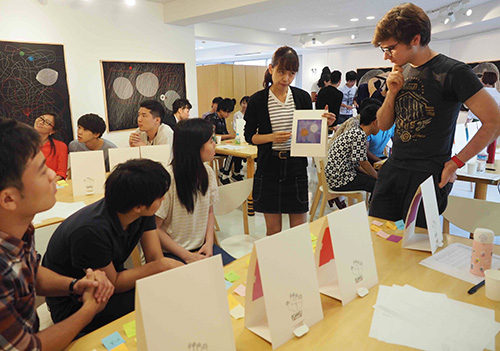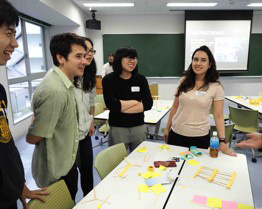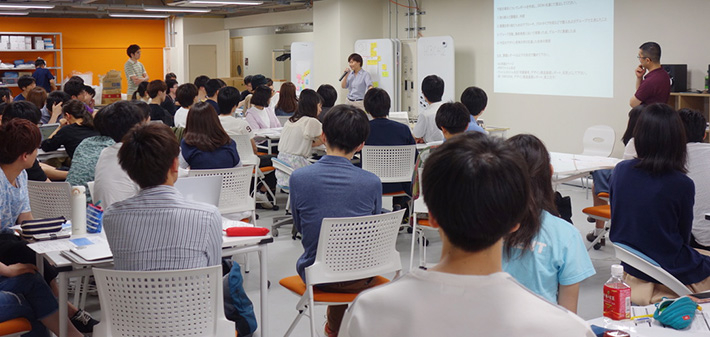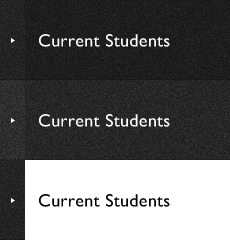Entrepreneurship Education and Development Programs
- Entrepreneurship Education at Tokyo Tech
- Entrepreneurship Development Programs
- Courses of Entrepreneurship Development Programs
- Events of Entrepreneurship Development Programs
Entrepreneurship Education at Tokyo Tech

Tokyo Tech has been implementing Entrepreneurship Education for all new students in all degree programs since April, 2024.
Due to the rapid development of science and technology, our current society is facing complicated challenges related to globalization, environment, and security. Society is said to be in an era of "VUCA (volatility, uncertainty, complexity, and ambiguity)". In order to live in a global society in the era of VUCA, along with one's field of expertise, it is necessary to have the mindset and skills to develop and create new values and to then implement them in the real world, which Tokyo Tech defines as "Entrepreneurship" in the wider sense. Entrepreneurship is like an operating system in computers. It is a system of the mindset and skills necessary for all students' future career path to be acquired. In order to provide entrepreneurship education, which consists of three types of study models "Core", "Option", and "Plus", we will prepare entrepreneurship courses.
Please refer to the following website for details. The website shows the information on the orientation of Entrepreneurship Education for new students in April 2024.
Entrepreneurship Development Programs
The goal of Entrepreneurship Development Programs is to develop talent capable of transforming their wants and ideas into innovations that are of value to society.
Various courses and events are provided to match the needs of participants - one may wish to gain the mindset and skills systematically in order to progress to the next level, another may look to experience social value through practical courses. Some already have a clear idea of their wants and aim to start a social enterprise or commercial business.
For those who are enthusiastic about starting their own business:
Those who are seriously considering starting a business as a means to deliver their "wants" to society are encouraged to participate in Category 3: Courses for business creation as explained below. Under supervision by professional accelerators, participants will have opportunities to develop their business ideas to a level of market formation and obtaining external financing.
Tokyo Tech's Industry Liaison, Innovation design Platform provides you with assistance for participating in business contests, financial support for validation tests and consultation on starting a business. For details, please refer to the Start-up Support for Students page on the Office's website:
Entrepreneurship Education Courses are divided into the three categories below:
Courses for skills and mindset
Category 1
—motivation, direction, getting ready to become part of society—
Courses are designed to help students develop and strengthen skills and the mindset required of entrepreneurs, and to identify their "wants."
[Key study topics]
- Recognition of Social Issues
- Creative Confidence
- User Centric
- Conception and Independence
- Role Model
Practical coursesCategory 2
—self-evaluation of capabilities, getting connected with society—
Courses are designed to provide students with hands-on experience of setting issues, creating ideas to solve them, and considering possible outcomes that would benefit users. Some courses will provide students with issues to be solved, while others may let students identify challenges themselves.
[Key study topics]
- Identifying Issues
- Verifying Hypotheses
- Mechanism of Needs
- Solutions
- Feasibility
Courses for business creationCategory 3
—providing value to society through your own business—
While Category 1 and 2 focus on the capabilities of individuals, this category will look at the value of the proposed business itself. Participants must already have clear business ideas/themes.
[Key study topics]
- Building High Continuity
- Impact on Society
Courses of Entrepreneurship Development Programs
The programs below allow eligible students to register for several courses in each category. For course details,
please refer to each program's website.
Category |
Category 1Category 2 |
Eligible students |
Master's students (all Schools) |
Organizing department (Main campus) |
Graduate Major in: Human Centered Science and Biomedical Engineering; Life Science and Technology; Urban Design and Built Environment; Innovation Science (Suzukake-dai) |
Program Description |
The program is composed of courses across graduate majors as listed in the left column. Through PBL exercises, field work, MOT (Management of Technology) education, etc., the courses allow students to gain a variety of knowledge and skills including: creativity, identifying issues, solving problems, working as a team, entrepreneurship, commercialization methodologies, and acquisition of intellectual property rights. A special focus is placed on field-based innovations in collaboration with external organizations (hospitals, local public entities, etc.). |
Category |
Category 1Category 2Category 3 |
Eligible students |
Master's and doctoral students (all Schools) |
Organizing department (Main campus) |
Tokyo Tech Academy for Leadership (Ookayama, Suzukakedai) |
Program Description |
ToTAL is an extracurricular excellence program for a select group of students from all Schools, and provides courses involving group work and workshops for developing leadership skills to bring out the best in each other. Through design thinking exercises, etc., students will study a wide range of areas —from the development of entrepreneurship (for beginners) to the creation of new businesses (advanced).
Study Guide & Curriculum | About ToTAL | Tokyo Tech Academy for Leadership (ToTAL) |
Other
Category |
Category 1 |
Eligible students |
Tokyo Tech Professional Academy students (Graduate Major in Technology and Innovation Management) |
Organizing department (Main campus) |
Tokyo Tech Professional Academy (Tamachi) |
Program Description |
An MOT certificate program offered by Technology and Innovation Management at the School of Environment and Society. The program is designed to help working adults develop their careers through learning about MOT while employed.
|
Events of Entrepreneurship Development Programs

AY2019 Design Thinking for Your Creative Practice
The following events are open to all undergraduate and graduate students in any School, but no credits are awarded. You can choose events that suit your needs from a selection of choices in different categories: those focusing on development of skills and mindset (Category 1), those providing more hands-on practice (Category 2), and those targeting individuals with clear business creation ideas (Category 3).
- *
- Apply to the organizing department for each event
- *
- Details such as timing and duration are subject to change. For the latest information, please refer to each program's website.
Courses for skills and mindset
Category 1
Introduction to entrepreneurship workshop –Design thinking for beginners–
Timing |
1Q |
|---|---|
Duration |
1time |
Department |
ToTAL |
Description |
A half-day workshop to experience the five steps of "design thinking" that targets beginners who want to learn how to develop entrepreneurship. Those who are interested in starting a business may use this opportunity as their first step toward future action. Undergraduate students are especially welcome. |
EGAKU
Timing |
2Q |
|---|---|
Duration |
1time |
Department |
ToTAL |
Description |
A workshop for recognizing diversity and experiencing the process of verbalization through appreciation and creation of art. |
Design Thinking For Creative Practice
Timing |
3Q |
|---|---|
Duration |
2days |
Department |
ToTAL |
Description |
A design thinking workshop focusing on creativity. Three lecturers with a track record of design thinking lectures at the Stanford d.school (Hasso Plattner Institute of Design at Stanford University) and The University of Texas at Austin will facilitate the workshop.
|
Future Foresight
Timing |
4Q |
|---|---|
Duration |
3days |
Department |
ToTAL |
Description |
For a given theme, participants will design a future society, envisioned 10-15 years from now, by using methods such as scanning and forced idea generation. |
1-day Idea-thon
Timing |
4Q |
|---|---|
Duration |
1day |
Department |
ToTAL |
Department |
An opportunity to use design thinking to hone your ideas to a level that can be considered a business (including social enterprises). |
Practical coursesCategory 2
Lean Launchpad
Timing |
1Q-2Q |
|---|---|
Duration |
6times (including camp)
|
Department |
ToTAL |
Description |
Participants will be divided into teams comprising four to five members. Under supervision by experts in business creation, each team will produce its own business idea, and verify whether users would accept the idea through customer interviews and adjustments. |
Programming Boot Camp
Timing |
3Q-4Q |
|---|---|
Duration |
4times (including camp) |
Department |
ToTAL |
Description |
Each participating team will develop a new web application in a short period of time, with support from web application development experts assigned to each team. |
PEECs final presentation
Timing |
4Q |
|---|---|
Duration |
1day |
Department |
PEECs |
Description |
Eight or so teams will make their final presentations on design-creation practices. The panel of judges includes hospital personnel, individuals from the Organization for Small & Medium Enterprises and Regional Innovation, Japan, and members of the Tokyo Tech Office of Research and Innovation. |
Engineering Design Project final presentation & demonstration
Timing |
4Q |
|---|---|
Duration |
1day |
Department |
CBEC |
Description |
Eight or so teams will make their final presentations. Participants include partner companies. There are also demonstrations. Outstanding projects will be invited to exhibit at events and/or showrooms. |
Courses for business creationCategory 3
Business Creation (Advanced course of Lean Launchpad for business creation and execution)
Timing |
1Q-2Q |
|---|---|
Duration |
6times (including camp) |
Department |
ToTAL |
Description |
With support from professional accelerators, participants are expected to assess the value of a business idea through discovering users ("early adopters"), strengthening the feasibility of the business as required when developing a business plan, and eventually develop the business to the extent where it sufficiently attracts third-party evaluators (sponsors). Students participate in teams, and those other than Tokyo Tech students can join. Event participants are subject to preliminary screening. |

AY2019 Fundamentals of Creative Design (PEECs)
Contact
Entrepreneurship Education Group, Promotion Office for Institute-Wide Education
Email entre.sui@jim.titech.ac.jp
Practical-Based Entrepreneurship Education Courses (PEECs)
Email peecs@lact.bio.titech.ac.jp
Tokyo Tech Academy for Leadership (ToTAL)
Email total.jim@total.titech.ac.jp
Career up MOT (CUMOT)


